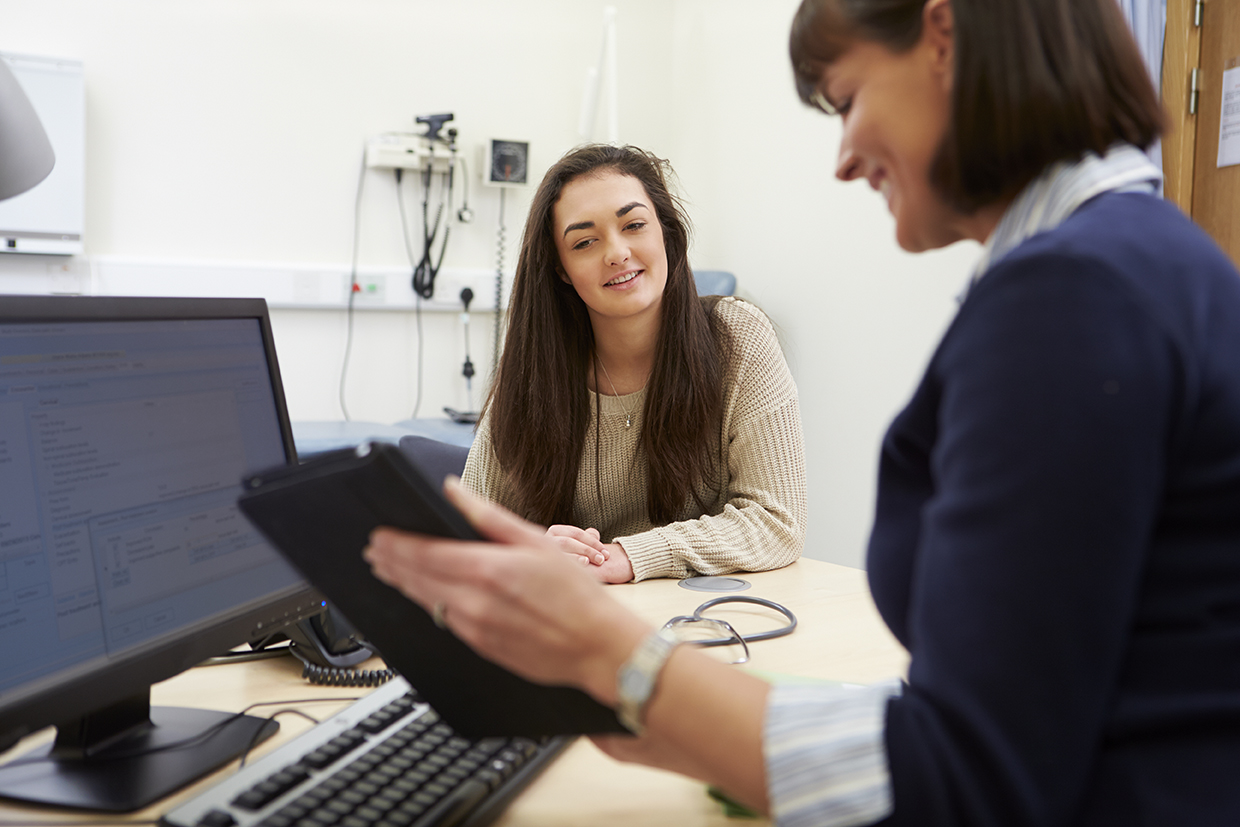Seeking Help or Advice

If I’m worried things aren’t normal, what should I do?
There are a range of resources available that provide useful and supportive information about your period. It is important to understand which ones are reliable and provide accurate and up to date information.
Contact your doctor if you are concerned about your period pain.
Act early so that any problems can be treated; do not wait until your pain gets worse.
Where can I go for information?

Where to go first?
Contact your doctor if you are concerned about period pain or any of the other symptoms covered in this online resource, Menstruation Matters. This is particularly the case if you have new symptoms, or if you are taking pain reducing and/or anti-inflammatory medication and it’s not helping much (or at all). If you are sexually active, sexually transmitted infections or urinary tract infections can be a common cause of sudden changes in pain or symptoms below your tummy button.
Your doctor will be able to give you the best advice for you and provide you with the best action plan to deal with your period problems or any other problems related to your gynaecological or sexual health.
Healthcare professionals such as your doctor or pharmacist, can discuss what medications might be right for you to help manage your period symptoms, including discussing different types of pain medication, anti-inflammatories, or other treatments for period pain and bleeding such as the contraceptive pill.
Your doctor may refer you to a gynaecologist for a more specialised consultation. A gynaecologist is a doctor that specialises in women’s health and the health of the female reproductive system.
What if I don't want to see my doctor?
There are other places that you can go to get help. For instance, there are specialist groups like Family Planning NSW who help promote sexual health. Family Planning NSW offer a range of reproductive and sexual health services including information and health promotion activities, as well as education and training.
If I'm worried things aren't normal, what should I do?
There are a range of resources available that provide useful and supportive information about your period. It is important to understand which ones are reliable and provide accurate and up to date information.
Website and Apps
You can find a lot of information about just about everything on the internet, and your period is no different. When you are looking up information about a medical condition like ‘period pain’ or ‘endometriosis’ then there are a few things to check if you aren’t sure if the website is giving reliable information.
Check to make sure you can find the following information:
Who is the creator of the site?
Any good health site makes learning who is responsible for the site and its information an easy task. You should not have to be a detective to figure it out. Reliable sources include universities, medical facilities, government agencies and scientific societies.
What is the purpose of the site?
Make sure it states their purpose clearly (e.g. for education, for sales and promotion). Look for sites that do not profit from your decisions. The mission of the site relates to the goals and values of the creator. The purpose of the site should be clearly stated in the “About this site” or in a mission statement. Usually a statement is made that the site provides “unbiased and accurate health information”.
What is the source of the information?
Many sites recycle information from other websites or offline resources. If the website lists the sources of information, this is of value. Is the website backed up by evidence from published research articles to support the claims made?
What is the basis of the information?
What evidence exists to support the information? Are facts and figures from medical/health research given? Is the information referenced to a journal or consensus statement? Has an expert panel reviewed the evidence? This type of information should be set apart and be clearly ascertainable.
How is the information selected?
The best sites are peer reviewed: their development of content includes a review process by an outside board or independent agency.
How current is the information?
Check that the website has been recently updated.

USEFUL APPS
There are a number of useful apps that help you track your period and when you are ovulating. These can be helpful in reminding you when your period is due, so that you can be prepared and ensure you are equipped with sanitary pads or other methods of period protection. We don’t endorse any particular piece of software or product, however according to the number of downloads, these are the three most popular options for common smartphone platforms are:
- *These website and apps have been provided as a public service only. We do not endorse any content or product that is shown on third-party sites or apps.
